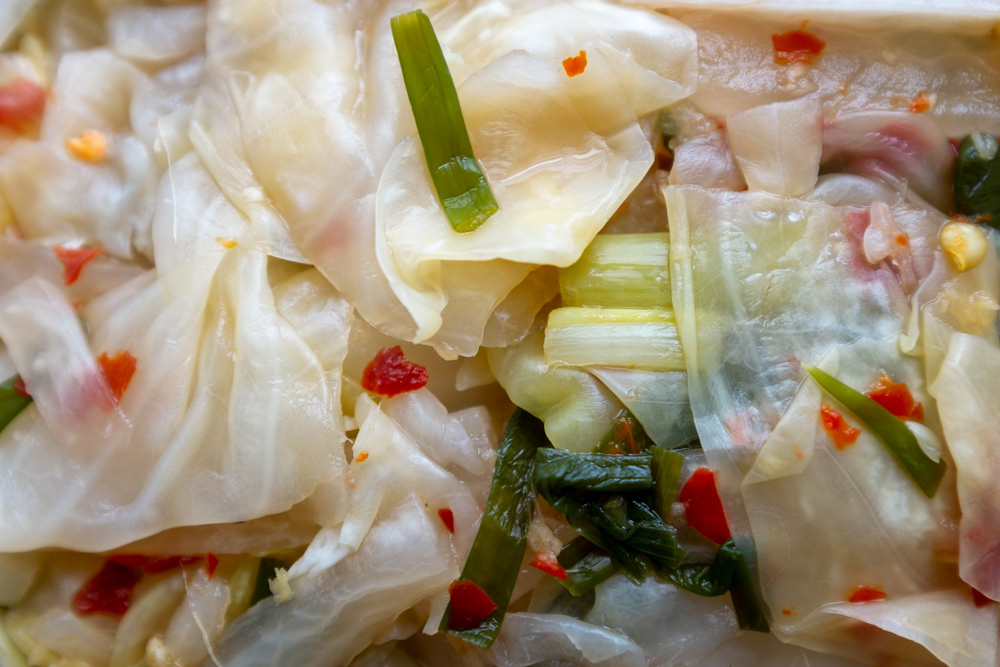The Smell
At first, I placed the jars of fermenting kimchi on my kitchen worktop, and after just one day a strong smell began to fill the kitchen. I took this as a good sign, ‘it must mean fermentation is taking place,’ I thought. The aroma brought back memories of Korean barbecues, and beef bowls, and whetted my appetite. The flavour remains to be proven, but at least it does smell like kimchi.


Day two
I have to admit the smell’s stronger than I was expecting. To solve this problem, I put both jars in a plastic bag and tied up the top. A few hours later I did the same with a second plastic bag, then a third, then a fourth. Perhaps this is why in Korea, they sometimes bury kimchi in their gardens in large pots. Though I think these days, the practice is less common and they have special kimchi fridges. Finally, due to complaints from my wife about making our apartment stink of fermenting cabbage, I had to take drastic action. The two jars are currently wrapped in six layers of plastic bags, inside a cardboard box packed with scrunched up newspapers, and placed under a wide open window in our spare bedroom. That seems to have done the trick.
I plan to let the kimchi ferment for five or six days before transferring it to the fridge where, in theory, the cold should slow the fermentation process. I plan to taste it on Saturday and hopefully share some with my in-laws on Sunday.
Health Benefits
Over the last few days, I’ve tried to prime my in-laws for the tasting by sending them links to webpages proclaiming the miraculous health benefits of kimchi. From its probiotic qualities to fighting heart disease, you name the ailment there’s a website claiming kimchi cures it. If you believed everything you read online, you’d quickly empty your medicine cabinet and refill it with jars of kimchi. Sorting facts from folk law online is no easy task. For example, many proclaim kimchi has great anti-cancer properties, well other sources state, eating kimchi to excess can increase the risk of stomach cancer. (It should be noted that this study was carried out in South Korea, where it’s estimated that kimchi is consumed at the rate of 18kg (39.5 lb.) per person, annually). I don't plan on eating that much.
🔺There's definitely more liquid forming in the jar. I was hoping the red colour would leech out of the chilli flakes and into the cabbage, as yet that does not appear to be happening.
My personal, unprofessional and unqualified, opinion is this; Kimchi is a source of ‘good’ bacteria, and everybody seems to agree, that having a gut full of this ‘good’ bacteria is a benefit to your general health. It’s also true that you should have a balanced and varied diet that provides all the vitamins and nutrients your body needs. With that in mind, kimchi is a good source of vitamins A, B1, B2, C, iron, also calcium, selenium, amino acids, and dietary fibre. The old adage, ‘everything in moderation,’ is something I always try to bear in mind. To be perfectly honest, I’m far less interested in the health benefits than I am with the delicious flavour. I eat kimchi because I like the taste.
Coming Soon
Look out for part three early next week where I’ll be tasting my kimchi and testing it on my in-laws. Judging by my wife’s reaction to the smell, I’m not sure how it’s going to be received. Hopefully, I’ve done it justice, and the flavour will be as tasty as I remember.
Also See Part Three










